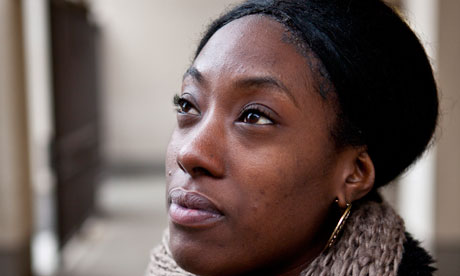
A female former gang member has exposed the growing levels of sexual violence against young women who join them, saying that many are willing to risk being raped in return for the status of membership.
Isha Nembhard, who was part of an 80-strong gang in Peckham, south London, said some girls readily accepted that they would be sexually abused when associating with male gangs.
The 20-year-old said that the problem had reached a point where being raped was becoming "normalised" among many young women. "Girls who are getting treated very badly know what they are getting into. They sleep with a boy and the boy asks if she will sleep with all his friends.
"It's about low self-esteem and a craving for attention. Even if they know it's wrong, they will do anything to get acceptance," she said.
"A lot of girls are sort of prostituting themselves to have sexual relationships within a gang and get treated in a bad way. For example, she might know about what happens to girls in the gang but still sleeps with all of them just for the status."
Nembhard, who was a teenage drug dealer, said that even those who are abused and called "pieces of shit" by gang members maintained sexual relationships with them because they felt "that they couldn't do better".
She added that cultural and social trends had exacerbated the problem since she left school. "When I was growing up, girls were more boisterous. I used to be a tomboy, but nowadays a lot of girls who go to school are more girly-girly and make sure they put on their makeup and wear the right sort of skirts. It's changed dramatically."
Nembhard said that girls tended to be more sexually active before the age of 16 than before. "In my day it wasn't like that," she said.
Social networking sites like Facebook had, she added, helped to encourage promiscuity among young women. "You've got young gi rls exposing themselves on there, making it normal, and so others follow suit."
Earlier this month the home secretary, Theresa May, announced £1.2m of new money over three years to tackle the issue as part of the government's revamped anti-gangs strategy.
Meanwhile, a senior Scotland Yard officer has voiced concern that the problem of young women being sexually abused by male gangs had grown sufficiently large to be classified as a "mainstream issue".
The Metropolitan Police detective in charge of protecting vulnerable young women from falling into gang culture, Detective Chief Inspector Petrina Cribb, said that, although police were targeting girls as young as 12 to warn them of the risks associated with male gangs, she believed that educating youngsters of the dangers should begin even earlier, at primary school.
Cribb also admitted concern about the levels of ignorance among young women about sexual abuse, saying that many did not understand that being forced to give oral sex was rape. Cribb, who manages the Met's Heart programme, which educates young people about the risks associated with joining gangs, added: "A lot of young people do not know what is the law, particularly with regard to being coerced into oral sex, which is rape, but some think it is just playing around.
"Young girls find that they may have no choice – a young girl who is surrounded by a group of boys might feel it's normal to go along with it."
Former girl gang members say that despite being aware of the risks many girls with low self-esteem are willing to risk being raped by entire gangs to increase their "status".
The Heart programme, which involves police, local authorities and charities, aims to teach women about relationship issues, rather than the traditional emphasis on sex education. Already 180 girls identified as at risk have begun one-on-one tutorials for the rest of the year, with another 725 workshop places available to teach girls what is unacceptable in a relationship.
The scheme has so far been introduced in three London boroughs – Lewisham, Newham and Waltham Forest – but Cribb said she felt "very strongly" that every school should be delivering a form of relationship education to empower young women. "We are trying to explain that girls actually have a choice and that consent is key to a sexual relationship," she said.
Gifford Sutherland of community group Foundation 4 Life, which uses reformed former gang members to educate vulnerable youngsters, said sexual abuse was not the only risk that gangs posed to girls. "Not only are girlfriends manipulated by young men for sex, but they become associates, hiding firearms, carrying drugs, and sometimes these young girls find that they have no choice.
"The key concern is that this sort of behaviour has been normalised, that they go through an initiation process or they are coerced into sex. We show that is not a healthy relationship."
Although the Met has no detailed data on the numbers of potential victims, it believes that the estimated 250 active criminal gangs in the capital account for one in seven reported rapes. A survey by the NSPCC has suggested that a third of teenage girls have been forced into sexual activity against their will, while research by the Race on the Agenda charity shows that rape is used to punish girl gang members.
However, those with first-hand experience of the way in which gangs operate say that the factors driving such abuse are complex.

